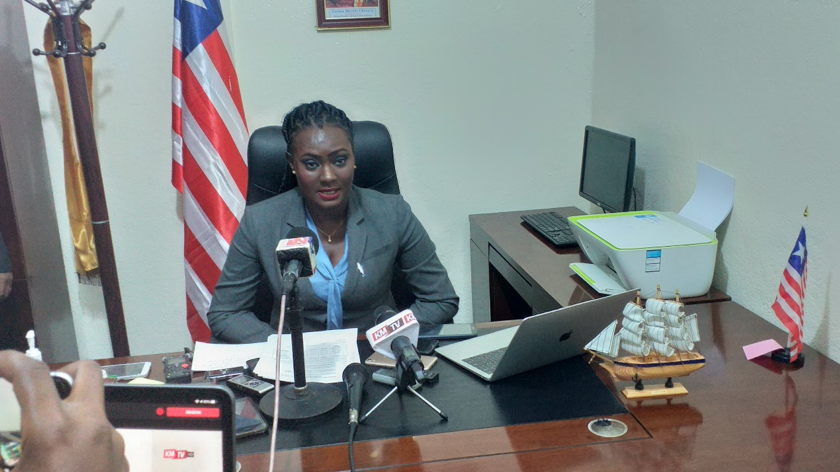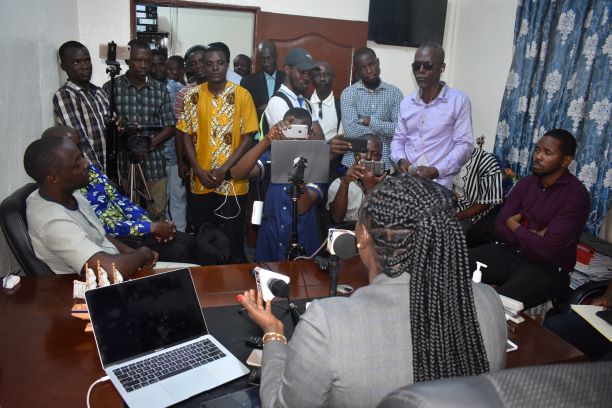By William Selmah wselmah@gmail.com
National Fisheries and Aquaculture Authority (NaFAA) says it is introducing a new fee structure for motorized engine and semi-industrial fishing boats operating in Liberian waters.
NaFAA’s Director General, Emma Metieh Glassco, the new fees affect only 600 out of 4,300 small canoes “consistent with our laws which will be structured on the basis of the engine capacity.
According to Madam Glassco, peddling canoes are exempt under the proposed fee structure pending Government’s provision of necessary subsidies such as outboard motor engines and nets in order to improve their capacity.

She was addressing a news conference Thursday on the Bushrod Island.
Under the proposed fees which reflect increment, license fees for one horse power to 14 horse power canoes proposed fee by the Technical Team for Management’s consideration, which previously cost LD 5,500, is US$ 200, while that of 15 to 40 horse power canoes previously L$10,000, will be US$ 475.
Under the new arrangement, the proposed fee for migrant or seasonal canoes is US$ 1250. Canoes in this category previously paid US$ 600.
Outlining some of the rationales behind the increment in the cost of operational license for semi-industrial boats, the NaFAA boss disclosed that “they have been operating without a legal fee structure (‘Gentlemen Agreement’) from previous administrations unlike the industrial fishing program which operates consistent with international standards”
Besides, Glassco also told reporters that the current fee is completely insignificant compared to the resources being harvested.
She cited for example that the average annual catch per motorized canoe is nine tons of fish which is equivalent to L$ 5.8 M, equated to L$ 30,000 paid in revenue for license.
“In order to compete with other fishing countries such as Gambia, Sierra Leone, Ivory Coast, Guinea and Ghana etc, which have robust industrial fishing sectors, the local fishermen must be fair enough to pay for fish resources harvested”, NaFAA’s Director General hinted.
She believes this could enable government to subsidize local fishermen and mongers and in so doing develop a robust semi industrial program including a value addition component.
Glassco wants Liberia to develop what she terms as a robust semi-industrial fishery program, in order to manage the country’s fish resources in line with the concept of the blue economy concept.
The blue economy concept is the “sustainable use of ocean resources for economic growth, improved livelihoods, and jobs while preserving the health of the ocean ecosystem.

